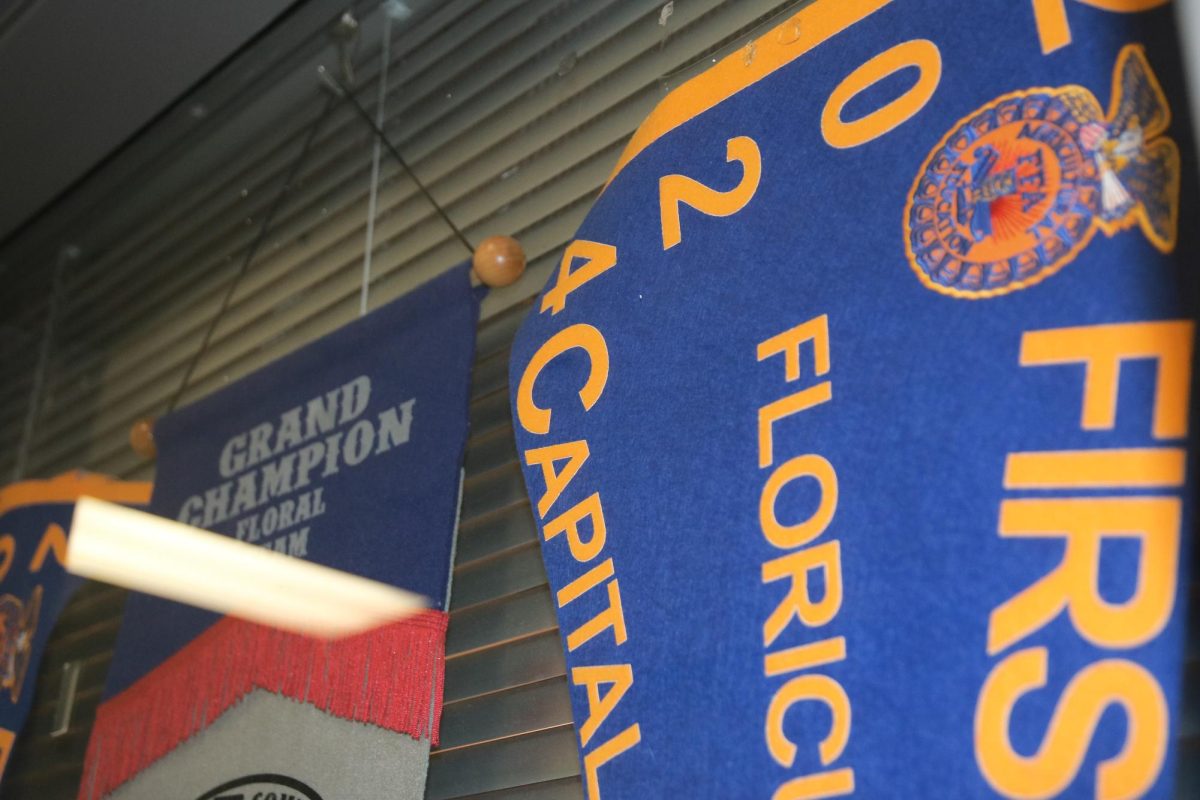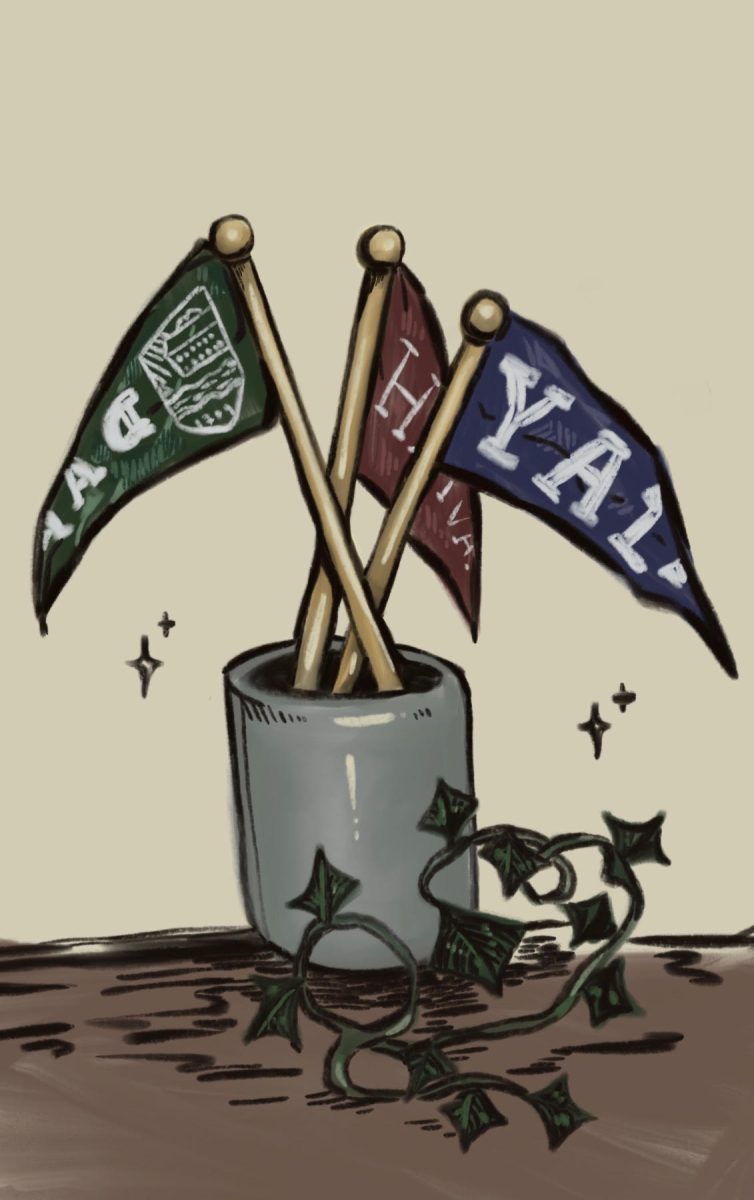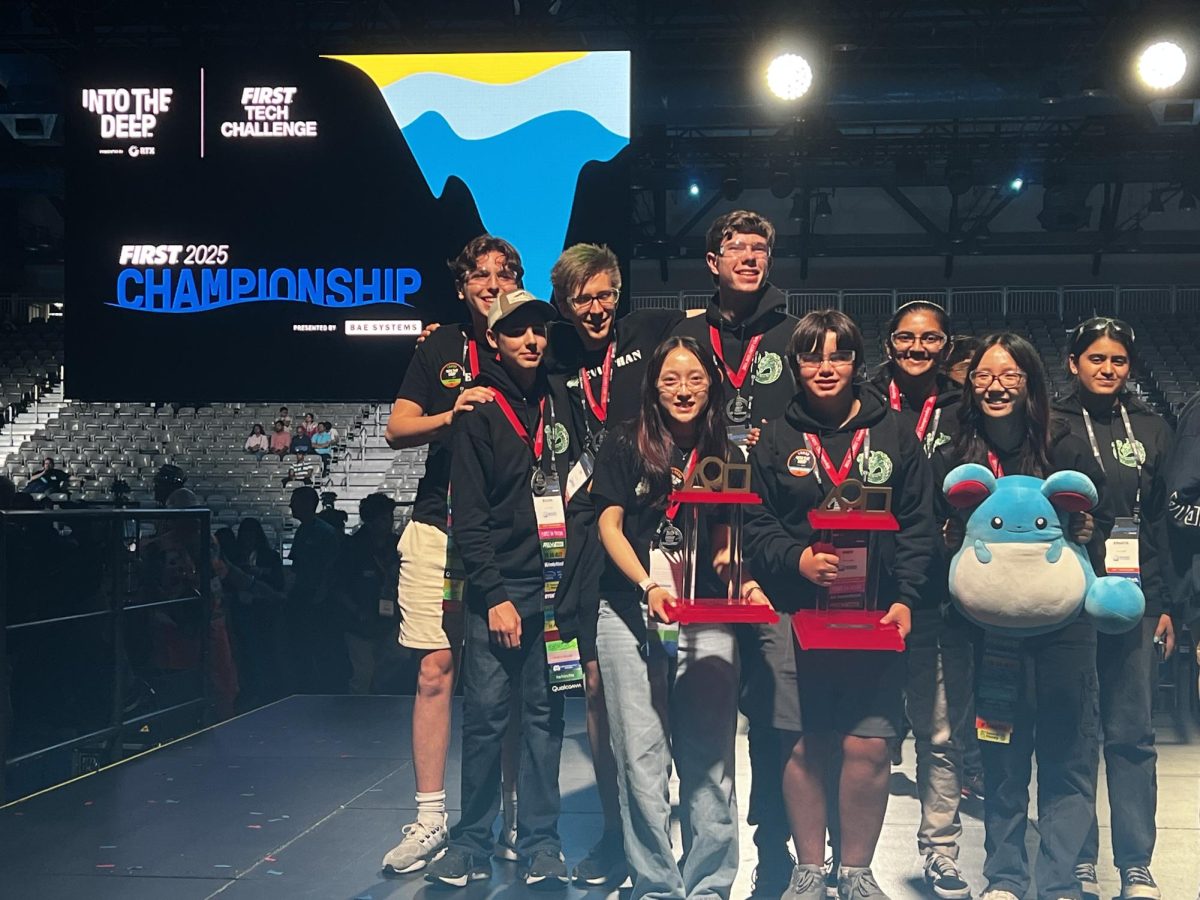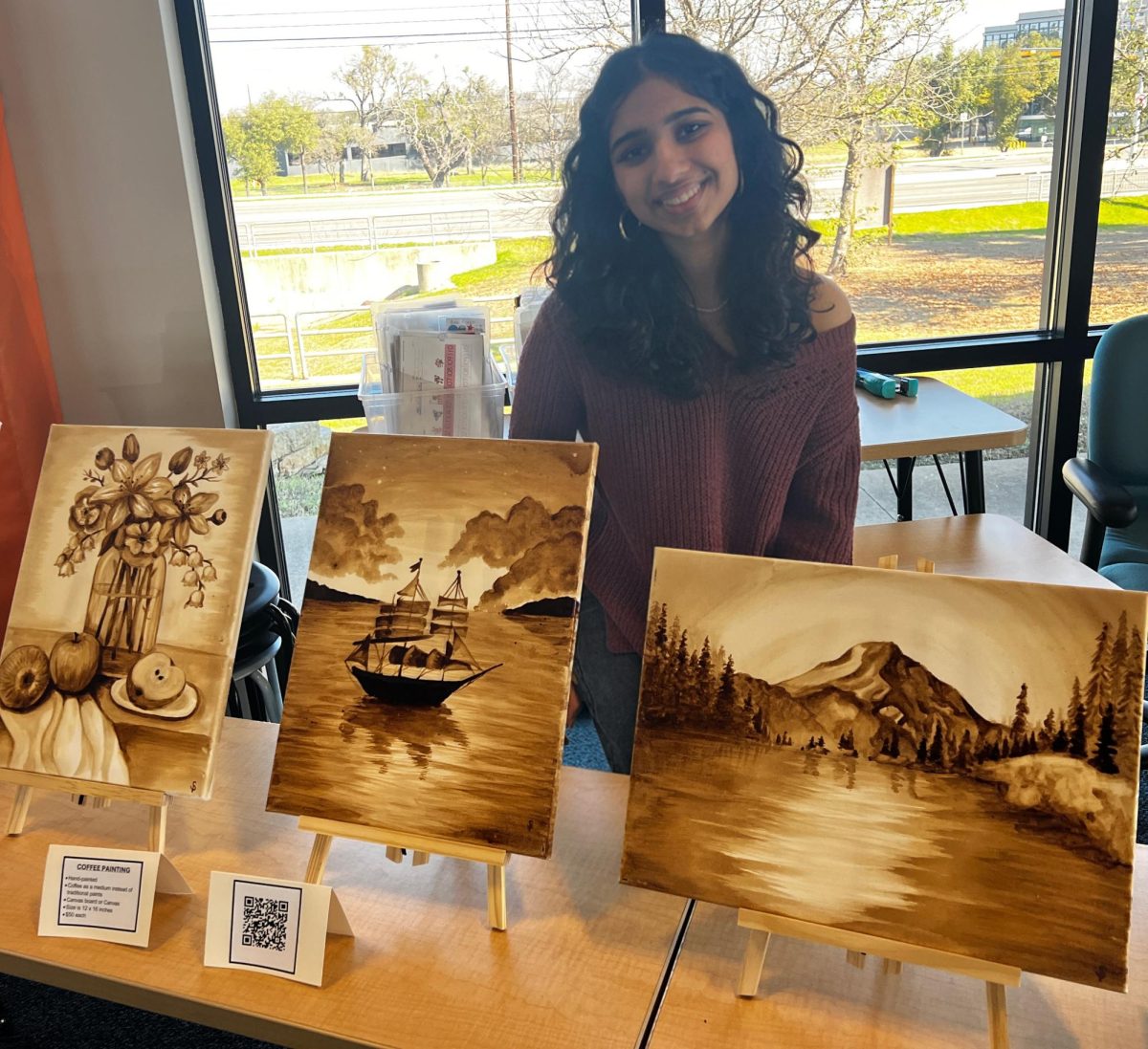In a classroom where equations meet excitement and math problems are a blast rather than a burden, Mr. Bowen isn’t just teaching—he’s transforming the way students experience math. AP Statistics and Algebra II teacher Matthew Bowen, in his second year at Vandegrift and sixth year of teaching overall, utilizes competitions and games to engage his students.
“From what I’ve seen, [games] greatly improve their engagement in class, which in turn improves their grades,” Bowen said. “They’re working just about from bell to bell—even when they don’t realize it, because it’s in the form of a game.”
At the start of the year, each student is grouped into one of the Harry Potter houses based on their personality, and throughout the rest of the year, they compete with other houses. At the end of each six weeks, house points – which can be earned through the many games that students play – are compared, and the house with the most points is rewarded with cupcakes, now a renowned symbol of power throughout Bowen’s students.
“I try to make my classes as engaging and entertaining as I can,” Bowen said. “From my perspective, if I’m not having a good time teaching it, my students probably are not going to be engaged or enjoying it while they’re learning it as well.”
This philosophy of his has led to a classroom filled with collaboration, competition and creativity. Instead of relying solely on traditional lectures and independent work, Bowen infuses his lessons with interactive activities and theme-based games that allows students to not just participate, but thrive.
“I’ve always had an inclination towards games,” Bowen said. “However, I didn’t realize I could apply it to teaching until more recently. I noticed that when students just had regular independent work time, they wouldn’t always use it wisely. But whenever we had a structured game or activity while working on independent practice, my students had a much higher completion rate across the board.”
This year, Bowen chose a different theme for each six weeks that drove the type of activities that the class played. Typically, students would complete a few questions off of their assignment, then get to compete against their classmates in the game for a few minutes, and repeat.
“One six weeks, we had a giant competition based off of the reality TV show Survivor. The students were grouped into tribes and looked for hidden immunity idols, completing challenges while working on their assignments to earn safety from votes,” Bowen said. “Toward the beginning of the school year, one six weeks was all Olympic themed games, so we had our version of archery, mountain climbing, or synchronized swimming.”
Though the activities are elaborate, they’re not chaotic. Bowen carefully balances structure and entertainment, designing each unit with a framework in mind but adapting based on student progress and interests.
“It is a ton of extra work, but just to set things up.” Bowen said. “Once I have it established and organized, I can very easily reuse it for future years.”
Next year, Bowen will no longer be teaching Algebra II, but rather IB Psychology. Earlier this year, Leander announced that they’d be removing the IB Program due to budget cuts. After abundant protests from students, however, the district reconsidered their decision, and is instead extending the IB program through at least the next two years.
“The big unknown next year is going to be my IB Psychology classes,” Bowen said. “I’ll get to go to training over the summer, but then I’ll have to construct and prepare brand new curriculum. I’ll definitely have my twist on everything.”
Bowen has a B.S. in Psychology and an M.Ed. in Educational Psychology from Texas A&M, and often runs into psychological concepts during AP Statistics lessons.
“It’s always been a dream of mine to have both statistics and psychology because they just go hand in hand with each other,” Bowen said.
As Bowen prepares for his next chapter, he reflects on the growing interest in his classes, so much so that enrollment is booming.
“The pros? I think my students look forward to coming to my class just as much as I look forward to having them in class,” Bowen said. “The cons? I’m realizing everybody wants to take my classes next year, so I have very large class sizes for the following year. I say bring them on – the more the merrier.”















